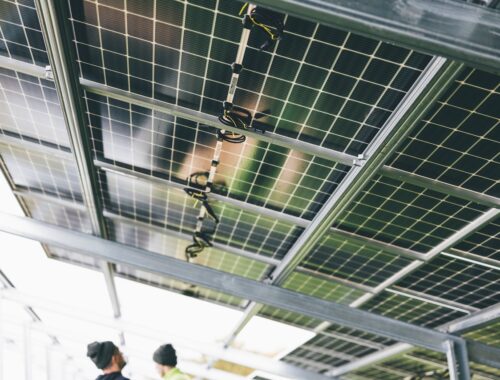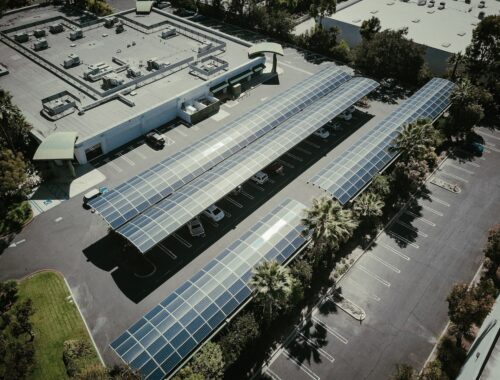
Exploring the Four Main Uses of Solar Energy
In recent years, solar energy has emerged as one of the most promising sources of renewable energy. Harnessing the power of the sun, solar energy offers numerous benefits, including environmental sustainability, reduced reliance on fossil fuels, and long-term cost savings. In this article, we will delve into the four main uses of solar energy and explore their significance in shaping a cleaner and more sustainable future.
Solar Photovoltaic (PV) Systems
Solar photovoltaic (PV) systems are perhaps the most well-known and widely used application of solar energy. These systems convert sunlight directly into electricity through the use of photovoltaic cells. The cells, typically made of silicon, generate an electric current when exposed to sunlight. Solar panels, consisting of multiple photovoltaic cells, are installed on rooftops, solar farms, and even in space to capture the sun’s energy.
Solar PV systems have revolutionized the way we generate electricity. They are scalable, allowing installations as small as residential rooftop systems to utility-scale solar farms spanning vast areas. PV systems have a remarkable lifespan, require minimal maintenance, and produce clean energy with no harmful emissions. Solar power generated by PV systems can be used to power homes, businesses, and even electric vehicles, reducing dependence on traditional fossil fuel-based energy sources.
Solar Heating and Cooling
Another prominent use of solar energy is for heating and cooling applications. Solar thermal systems harness the sun’s energy to provide hot water, space heating, and cooling in both residential and commercial settings. These systems utilize solar collectors to capture and convert sunlight into usable thermal energy.
Solar water heaters are a common example of solar thermal systems. They use solar collectors to heat water for various domestic uses, such as bathing, cleaning, and space heating. Solar cooling systems, on the other hand, utilize solar energy to power absorption chillers, which provide cooling for air conditioning in buildings. By replacing conventional heating and cooling methods, solar thermal systems contribute to significant energy savings and reduced carbon emissions.
Solar Lighting
Solar lighting is an eco-friendly alternative to traditional lighting systems, offering both outdoor and indoor lighting solutions. Solar-powered lights, equipped with photovoltaic cells, absorb sunlight during the day and store the energy in batteries. This stored energy is then used to power the lights at night.

Outdoor solar lighting finds extensive use in gardens, pathways, street lighting, and public spaces. They provide illumination without the need for electrical wiring or grid connections, making them cost-effective and easy to install. Indoor solar lighting systems, including solar lanterns and solar-powered LED bulbs, offer reliable lighting solutions for off-grid areas and locations with limited access to electricity.
Solar-powered Vehicles
The growing concern for reducing greenhouse gas emissions has led to significant advancements in solar-powered transportation. Solar energy can be utilized to power electric vehicles (EVs), reducing their reliance on grid-charged batteries. Solar panels integrated into EVs can harness sunlight to generate electricity and extend the driving range of these vehicles.
Solar-powered vehicles not only help mitigate carbon emissions but also offer increased energy efficiency and reduced dependence on fossil fuels. Solar race cars, boats, and even airplanes have demonstrated the potential of solar energy in propelling sustainable transportation forward.
Solar energy has emerged as a versatile and sustainable source of power, offering numerous applications that contribute to a cleaner and greener future. Solar photovoltaic systems, solar heating and cooling, solar lighting, and solar-powered vehicles are among the four main uses of solar energy. These applications showcase the remarkable potential of solar energy to revolutionize the way we generate electricity, heat and cool our buildings, illuminate our surroundings, and power our transportation systems. By embracing solar energy, we can make significant strides towards a more sustainable and environmentally conscious world.
You May Also Like

How does solar energy work?
March 30, 2023
What are the different types of solar energy?
March 28, 2023

